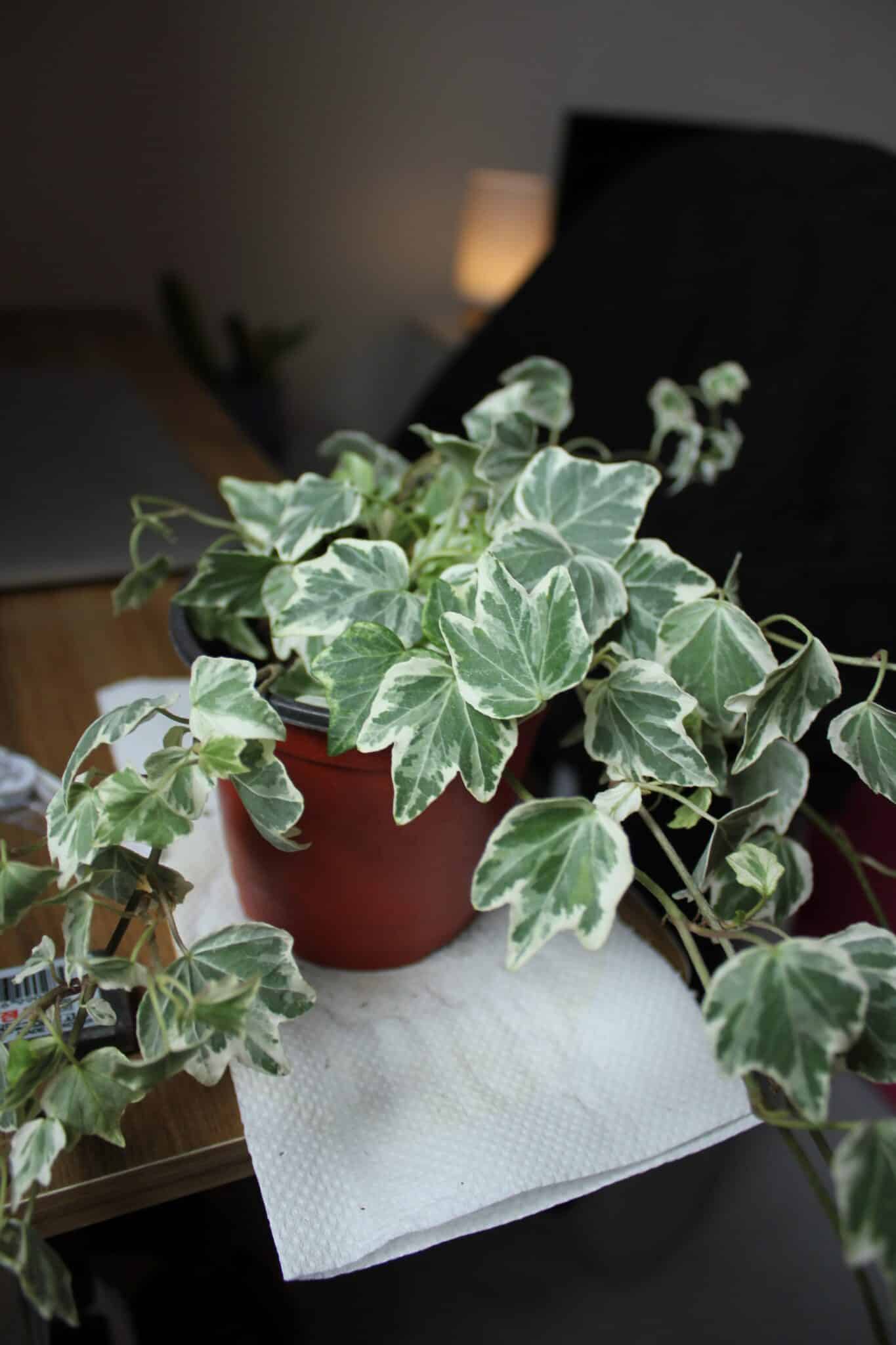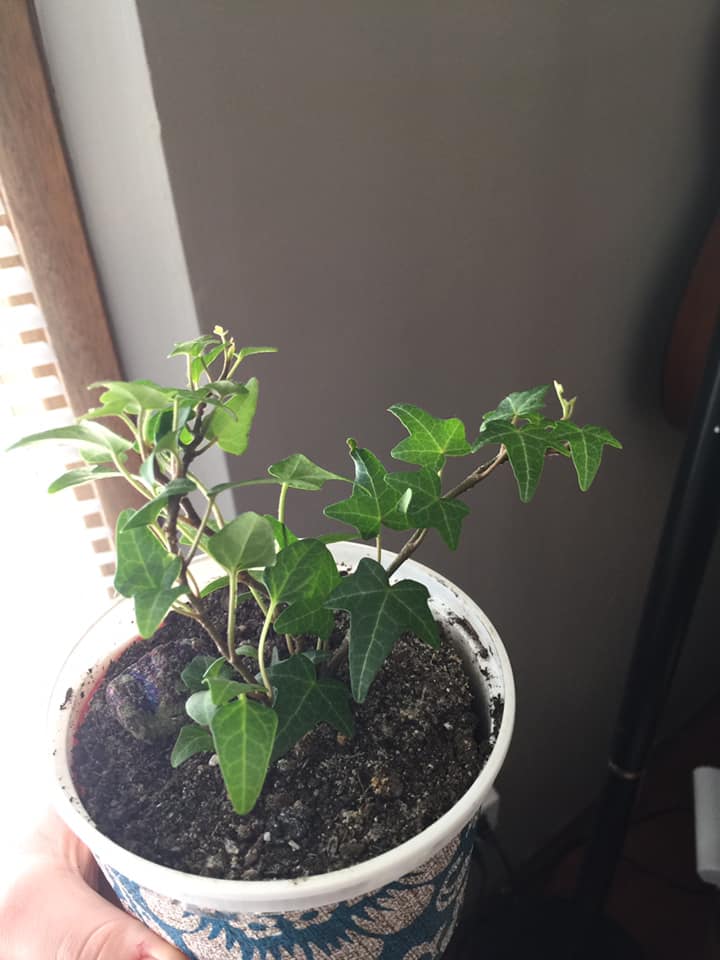English Ivy is an evergreen plant that can also act as a ground cover, thanks to its growth habit. So, choosing the best soil and fertilizer for this plant is essential.
Look below to see what information we mustered on soil and fertilizers for English Ivy.
Table of Contents Show
What Kind of Soil does English Ivy Need and Why?
English Ivy (Hedera helix) is a popular, beneficial houseplant brought into the limelight by European colonists in early 1727.

This plant prefers well-draining, loamy soil with some organic matter. It prefers neutral soil pH ranging from 6.0 to 7.5.
Look below for the features of proper soil for English Ivy.
| Requisities | Optimal Condition |
|---|---|
| Soil Compaction | Loose Soil |
| Texture | Average loam |
| Drainage | Good Drainage |
| Water Retention | Doesn't like water for a long time in soil |
| Temperature | 65-75°F |
| Soil pH | 6.0-7.5 |
Moreover, clay pots are the best for English Ivy as they provide good airflow. You can also use plastic pots but make sure they provide good drainage.
Prepping the Soil/Potting Mix for English Ivy
You can go to the market and buy yourself a potting mix for your plant. Or, you can prepare the mixture at home by yourself.
Each has its benefits, but if you want to prepare the potting mix at home, we have you covered.
Look below for the potting mix you can create at home for your plant.
Materials Required
Get the following materials ready for the preparation process.
| Materials | Features |
|---|---|
| Perlite | Improves soil aeration, drainage |
| Peat Moss | Lowers pH, improves drainage |
| Coco Coir | Makes soil porous and light |
| Vermiculite | Helps retain nutrients |
| Sand | Improves aeration |
| Limestone | Manages the soil pH |
| Compost | Adds required nutrients to the soil |
Below is the list of recipes for your English Ivy.
1st Recipe
- One part of the perlite
- A part of peat moss
- An equal amount of potting topsoil
2nd Recipe
- Four and a half gallons of perlite
- Six gallons of peat moss or coco coir
- Six gallons of compost
- One and a half-gallon of organic fertilizer
- One-fourth cup lime if you are using peat moss
3rd Recipe
- Two gallons of peat moss or coco coir
- Three tablespoons of lime if you are using peat moss
- Two cups of sand
- One and a half gallons of perlite
- Two tablespoons of organic fertilizer
Be careful while mixing the recipes, as one wrong mixture can kill your plant.
Understanding what every material does is always better before hurling them into the potting mix.
Common Signs that You are Using the Wrong Potting Mix
Below are the common signs the plant may display if the potting mix is incorrect.
- If your soil is giving an unpleasant odor, it is high time to check the soil quality you are using.
- The pests love soil that is not up to the standards. Check the plant and soil regularly for any signs of pests.
- If your soil doesn’t have good circulation, you will see white molds on the soil’s surface.

- Bad potting soil will not let the plant take the required nutrients and water. So if your plant has stunted growth, it may be a sign.
- Look for the signs of soil compaction. If your soil cannot soak water quickly, it’s time to change the potting soil.
- If the water infiltration is poor, the root will start to rot. So, check the roots constantly for signs of any damage.
- The plant’s foliage will be withered and show terrible signs of improper growth. Catch up on those signs.
Best Commercial Soil Mixes for English Ivy
Besides preparing the potting mixes at home, you can buy the potting mixes commercially.
Look below for the potting mixes we recommend for your plant.
| Potting Mix | Benefits | Image |
|---|---|---|
| Miracle-Gro Indoor Potting | 1. Comes with added coco-coir 2. Good for container plants |  |
| Miracle-Gro Moisture Control Potting Mix | 1. Helps grow the plant twice as big 2. Absorbs as much as 33% water |  |
| All Purpose Indoor Houseplant Potting Soil Mix | 1. Contains 50% peat moss and 50% perlite 2. Useful for many indoor plants |  |
| Fox Farm FoxFarmOcean2 | 1. Filled with nutrients 2. Well-aerated and adjusted pH |  |
Does English Ivy Plant Need Fertilizers?
English Ivy is not a plant that will require frequent fertilization. But it doesn’t hurt to provide the plant with some nutrients once in a while.
During winter, avoid fertilizing the plant as they are dormant.
You can also go for a 20-20-20 ratio houseplant fertilizer diluted down to half its strength every month during spring and summer.
If you mess up the fertilizing for your plant, it will show some symptoms that you should be wary of.
Signs your English Ivy Needs Fertilizing
When the plant requires some nutrient boosts, it will give you some visible signs. Look out for the following symptoms in English Ivy.
- The plant will show yellow leaf tips. The yellowing will gradually spread through the leaf and into the stem.
- You will see the leaves have a dull appearance. This is due to too many nitrates caused by a lack of potassium.
- Lack of potassium causes small patches of discoloration that grows with time.
- Even in the plant’s peak growing season, its growth will be slow and eventually halt.
- Leaves will turn purple or reddish, and you will even witness chlorosis on the plant.
If your plant is going through stressful situations like temperature extremities, no new leaf production, extreme soil dryness, etc., you should not fertilize them.
How to Fertilize English Ivy?
To fertilize English Ivy, you must follow a specific procedure to ensure efficient fertilization. Look below for the fertilizing steps.
- Get a tub, a liquid fertilizer, a watering can, and a measuring cup. Wear protective gear like a mask, gloves, and goggles.
- Dilute the liquid fertilizer to half its strength by mixing it with equal water. Stir the solution well.

- My English Ivy liked it when I applied the solution directly to the soil. So, do the same.
- After fertilization, water the plant to ensure the nutrients have spread throughout the pot well.
- Empty the saucer beneath the pot to avoid stressing the plant.
- Do not fertilize English Ivy during winter, when the plant is already stressed due to low temperature and light.
If you ever overfertilize your plant, you can remove the excess salt from the top of the soil or flush the salt off using high-pressure water.
The best organic fertilizer you can use for English Ivy is fish emulsion. But be careful; too much organic material can imbalance the nutrients.
Best English Ivy Plant Fertilizers to Use
You can look for fertilizers for English Ivy online if you don’t want to depend on organic materials only.
Look below for the list of best fertilizers for English Ivy.
| Fertilizers | Benefits | Images |
|---|---|---|
| Pothos Fertilizer (NPK: 3-1-2) | 1. Effortless application 2. Provides required nutrients to the plant |  |
| FoxFarm Liquid Nutrient Trio Soil Formula (NPK: 6-4-4) | 1. Works for a load of indoor plants 2. Heals the root system |  |
| Organic Indoor Plant Food (NPK: 1-1-1) | 1. Comes with extra zinc, iron, soyabean, and seaweed 2. All-purpose fertilizer |  |
| Miracle-Gro Liquafeed All Purpose Plant Food | 1. Suitable for both indoors and outdoors plant 2. Provides nutrients instantly |  |
In the End
English Ivy may not be too needy about what kind of care conditions you provide them, but they will grow best if you tend to their needs.
English Ivy soil and fertilizer needs are as important as other factors.
Good luck choosing the right one!
